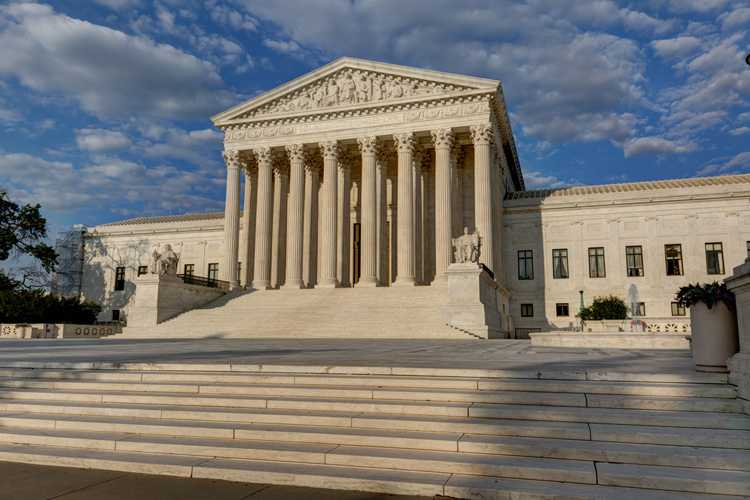Supreme Court considers value of sticking to precedent in battle between 2 states

Shutterstock.com.
U.S. Supreme Court Justice Stephen G. Breyer defended the value of precedent on Wednesday as the high court considered whether to overrule a decision holding that a state may be sued in another’s courts.
“Every time we overrule a case, it’s like a little chink in an armor,” Breyer said during the oral arguments. The undercurrent was abortion rights, an issue raised in recent confirmation battles for Justices Neil M. Gorsuch and Brett M. Kavanaugh.
Justice Samuel A. Alito Jr. expressed a different concern. “Do you think,” he asked, “that the public would have greater respect for an institution that says, you know, we’re never going to admit we made a mistake; because we said it and we decided it, we’re going to stick to it even if we think it’s wrong, or an institution that says, well, you know, we’re generally going to stick to what we’ve done, but we’re not perfect.”
The Washington Post, the National Law Journal, SCOTUSblog, USA Today the Wall Street Journal and the New York Times have coverage of the arguments.
The case is on a return trip to the Supreme Court. The high court ruled in 2003 that California’s Franchise Tax Board isn’t immune from the Nevada suit by microchip inventor and multimillionaire Gilbert Hyatt.
A Nevada jury awarded Hyatt nearly $500 million in damages, fees and interest on his claim that a California tax board investigator who questioned the timing of his move to Nevada had harassed him by peering through his windows and examining his trash. The Nevada Supreme Court later reduced the award to $1 million.
On the case’s second trip to the Supreme Court in 2016, the justices split 4-4 on whether to overrule Nevada v. Hall, the precedent allowing one state to be sued in another’s courts.
The court did decide a second issue, however, ruling that the Nevada court could not award damages that are higher than a citizen could obtain in a suit against Nevada’s own agencies. Nevada’s damages cap in suits against government entities is $50,000. On remand, Hyatt was awarded $100,000 in damages on two claims.
During the arguments on Wednesday, a lawyer for the California tax authorities, Seth Waxman, argued that the framers were unanimous in their understanding that states couldn’t be sued in the courts of other states.
Justice Sonia Sotomayor interrupted. “It’s nice that they felt that way,” she said, “but what we know is they didn’t put it in the Constitution.”
Justice Brett M. Kavanaugh followed up with his own question.
“The Constitution is a document, in my view, of majestic specificity,” Justice Kavanaugh said. “It’s got a lot of specific details on very minute things, and this issue which you say rightly is so important, but then somehow was not mentioned in the text of the Constitution.”
The case is Franchise Tax Board of California v. Hyatt.



